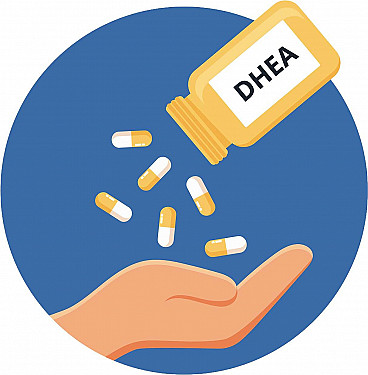
What are somatic workouts?

How to curb your stress eating

How to spot Parkinson’s disease symptoms

8 simple ways to reduce ultra-processed foods in your diet

Heart failure symptoms in women: How they’re different

GERD diet: Foods to avoid to reduce acid reflux

Strong is the new skinny

Everyday habits that sneakily weaken your bones

Don’t wait to get help for back pain

Correcting how you walk may ease osteoarthritis knee pain
The arguments against dietary supplements
The Dietary Supplement and Health Education Act of 1994 (DSHEA) was intended to meet the concerns of consumers and manufacturers to help ensure that safe and appropriately labeled products, including dietary supplements, remain available to those who want to use them. The assumption behind the Act is that there may be a "positive relationship between sound dietary practice and good health."
 Has the dietary industry gone well beyond any reasonable definition of dietary practice in the promotion of products? Do Americans think that a diet includes St. John’s wort, ginseng, guarana, saw palmetto, blue-green algae, bee pollen or horny goat weed? The reality is that dietary supplements have not lived up to the promise of the DSHEA.
Has the dietary industry gone well beyond any reasonable definition of dietary practice in the promotion of products? Do Americans think that a diet includes St. John’s wort, ginseng, guarana, saw palmetto, blue-green algae, bee pollen or horny goat weed? The reality is that dietary supplements have not lived up to the promise of the DSHEA.
Here are some reasons why the well-intended DSHEA legislation does not go far enough:
- Supplements such as St. John’s wort, saw palmetto, ginseng, guarana extract and many of the products covered by the DSHEA are drugs, regardless of their regulatory status. These products affect the way the body works in the same way that prescription drugs do. Doesn’t it make sense to use the same set of rules and regulations governing prescription drugs to approve the marketing of dietary supplements?
- Have you ever wondered about the wording used in the claims made for dietary supplements? Unlike all other drugs, the manufacturers of these products don't have to show that there is evidence that their products actually work. Manufacturers are required to put this warning on their labels: "These statements have not been evaluated by the Food and Drug Administration. This product is not intended to diagnose, treat, cure or prevent any disease." If the product is not intended to treat, cure or prevent any disease, what is it to be used for?
- If supplements actually worked (and many do not, according to scientific studies), they must have risks as well as benefits. No medicinal product is without side effects. No drug is entirely safe even if taken as directed. Yet, supplement manufacturers don't have to show that their products, which they call supplements instead of drugs, are safe or effective. Unlike the drugs regulated by the FDA, it is up to the regulators to show the product is unsafe. That may not sound bad, except for the fact that, unlike producers of drugs, the manufacturers of supplements don't have to tell the FDA about problems they discover with their products.
- The FDA tightly regulates the manufacturing of all drugs except those covered by the DSHEA. The FDA sets strict manufacturing requirements for all drugs that receive or hope to receive approval for sale. This is not required for products covered by the DSHEA. As things stand, supplement manufacturers have virtually free rein to market anything they wish.
It took the FDA over seven years to obtain sufficient evidence to allow the removal of ephedra-containing products from the shelves. During those seven years, the FDA received 16,000 reports of injuries, 62,000 consumer complaints, and at least 155 deaths related to ephedra-containing products.
So, the next time you are thinking about purchasing a dietary supplement, remember that you are not very well protected. Consumers are at the mercy of the manufacturers and marketers of these products. Many manufacturers can be trusted, but some cannot. At the moment there is no way to tell one from another.
Disclaimer:
As a service to our readers, Harvard Health Publishing provides access to our library of archived content. Please note the date of last review or update on all articles.
No content on this site, regardless of date, should ever be used as a substitute for direct medical advice from your doctor or other qualified clinician.

What are somatic workouts?

How to curb your stress eating

How to spot Parkinson’s disease symptoms

8 simple ways to reduce ultra-processed foods in your diet

Heart failure symptoms in women: How they’re different

GERD diet: Foods to avoid to reduce acid reflux

Strong is the new skinny

Everyday habits that sneakily weaken your bones

Don’t wait to get help for back pain

Correcting how you walk may ease osteoarthritis knee pain
Free Healthbeat Signup
Get the latest in health news delivered to your inbox!
Sign Up




